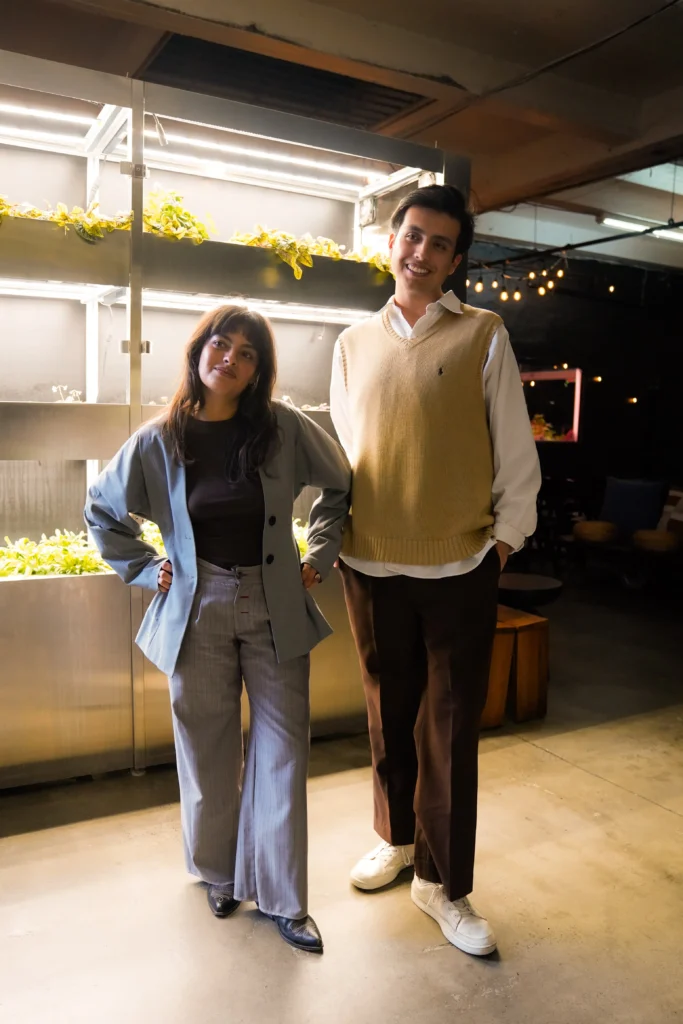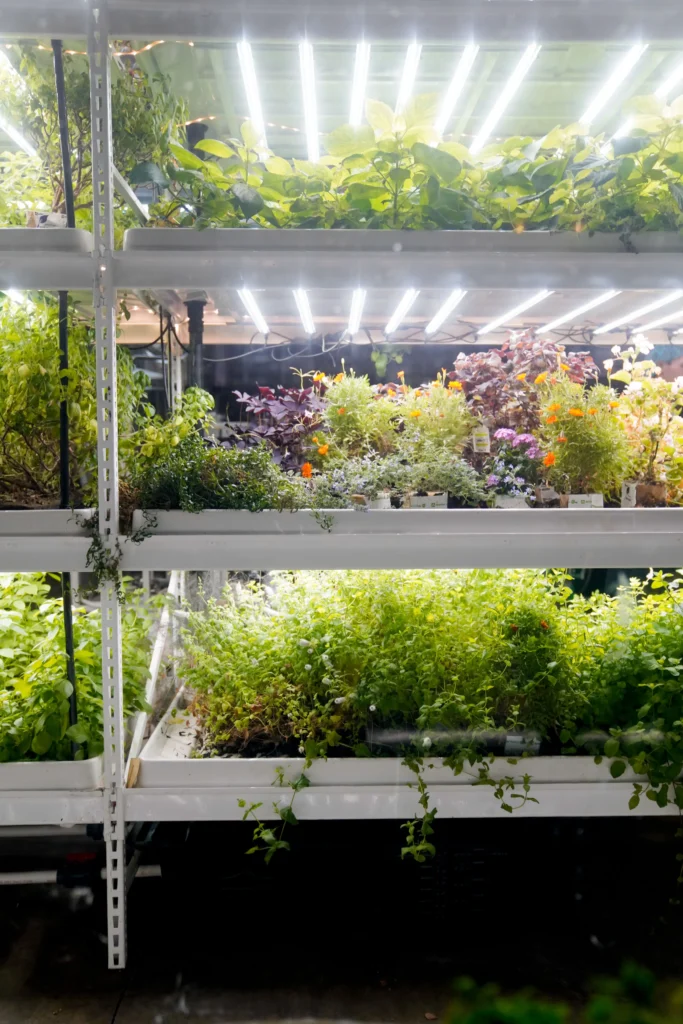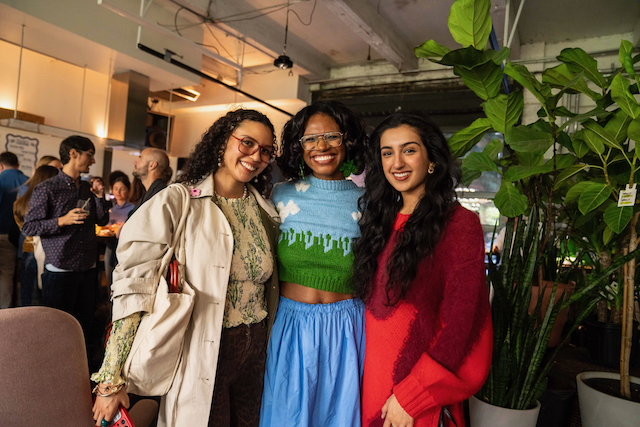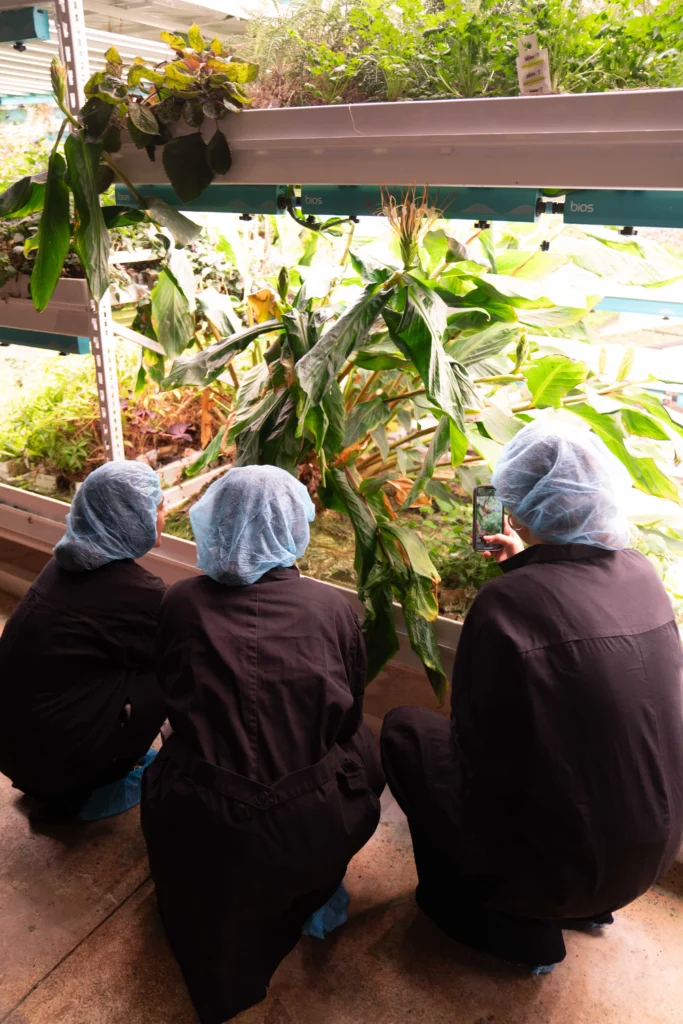Action and the successful adoption of climate solutions hinge on our ability to cultivate hope. Bearing witness to the loss of worlds– enacted through assaults on land, culture, and community– threatens our capacity to imagine and strive for a just future. Collaborators and co-founders of the Symbiocene, Isaias Hernandez and Kalpana Arias are persistent in demonstrating that there is no shortage of hope in the climate space. During last month’s Climate Week NYC the two, environmentalists and community organisers, featured at events across the city, making room for new narratives and frameworks of action to take root.

On Wednesday September 25th, in Brooklyn’s Prospect Heights, storytellers, researchers, educators, and environmentalists gathered at Farm.One for Symbiofutures, a Symbiocene satellite event sponsored by The Fossil Fuel Non-Proliferation Treaty. Tucked away on a quiet street, the farm could be missed if you weren’t listening for the sounds of joy. Chatter, laughter, and music spilled from a small entryway, signaling that this was a space where networks take root horizontally, while greens sprout vertically. Animated by conversation and a warm three-piece string group– Gaia Music Collective– the space was an illustration of what happens when people come together with intention. From the backdrop of the farm to flower-topped bites and drinks, every detail lifted the atmosphere.
Atmos Magazine’s Whitney Bauck kicked off the evening’s panel discussion, which focused on AI, Adaptive Intelligence, and More-Than-Human Thinking. Sharing the floor were Grist’s Climate Fiction Creative Manager Tory Stephens, craft and culture storyteller Aditi Mayer, nuclear energy advocate Isabelle Boemeke, and urban greening activist Arias. Each speaker offered perspectives that, in their own way, framed climate action as deeply intertwined with curiosity and collective action. Throughout the discussion, Bauck held space for guests to explore technology and intelligence from multiple angles: from reimagining the trajectory of fast-paced modern innovations, to honouring the deeply rooted technologies of traditional ways of life, and navigating the growing influence and energy costs of emerging AI tools.

Stephens presented Grist’s Imagine 2200 project, which challenges writers to imagine abundant and transformative futures. “Our contest in utopian fiction is a positive challenge that gets people to practice the muscle of writing hopeful stories about the future we want to live in,” he shared. He went on to speak passionately about the exercise that transcends writing accolades and mobilises all contributors to activate their creativity and deep reflection; “it’s about world-building… it’s like a design lab to think through that hope-filled world.”Mayer brought attention to another form of world-building embedded in place and culture: craft. In contrast to fast fashion, an industry that thrives on flattening culture, Mayer highlighted the wisdom of craft. “Craft honors tradition and ecology… when we think about craft throughout the world, craft is tied to a specific ecology. A specific fiber grows in a specific region, and there is usually a really deep traditional element. So when we think about craft through this lens of tradition, tradition is sustained through socio-ecological conditions.” Her words made a compelling case for the liberatory potential of culture and tradition as a readily available guiding force for ecological connection and social justice.
Throughout the discussion, Bauck held space for guests to explore technology and intelligence from multiple angles: from reimagining the trajectory of fast-paced modern innovations, to honouring the deeply rooted technologies of traditional ways of life, and navigating the growing influence and energy costs of emerging AI tools.
Putting these narratives in perspective, Boemeke warned about the rising energy costs of technological developments emphasising how the adoption of a singular view of AI doesn’t come without its costs, among many, high energy demands. “I don’t see how we’re going to slow down our energy consumption. As a matter of fact, this is only increasing as companies implement more and more energy-intensive AI tools. We could have a whole philosophical discussion about whether this is the right way to go, but it’s here and it’s happening.” Boemeke advocates for nuclear energy as the cleanest and most efficient way to meet the demands of advancing technologies and power the technologies that we envision and choose for the future.

Grounding the conversation in human relationships to land, Arias called on the audience to slow down, particularly in regards to human engagement with nature in urban spaces, what she referred to as “slow tech thinking”. Her poignant words resonated across the rest of the conversation, “the solutions to the climate crisis will not come from a single person or industry; they will also not only come from the people in this room but from the many others joining the movement, who we must bring into the conversation.” The reminder of inclusion and community-centred approaches served as a powerful call to broaden the scope of the climate movement, connecting it back to the land and humans who can all act through their own unique connections to place, amidst climate breakdown.
As the discussion came to a close, an audience member pointed to a beetle crawling up one of the chairs, a fitting reminder of the place where we sat; an urban farm, an invitation to slow down and imagine.
The reminder of inclusion and community-centred approaches served as a powerful call to broaden the scope of the climate movement, connecting it back to the land and humans who can all act through their own unique connections to place, amidst climate breakdown.
Across New York City, discussions of AI and technology dominated many Climate Week events. The Symbiofutures panel discussion offered a more expansive view of intelligence in the digital age. As advocates of the Fossil Fuel Non-Proliferation Treaty remind us, “the just transition must be equitable for all.” Similarly, in choosing to center the margins, the panel recognised the value of past/present knowledge systems– often overlooked in mainstream climate solutions– as essential pillars for imagining and building a just future. Hope, after all, is not simply an abstract feeling but a vital context that must be intentionally imagined and created. By fostering a dialogue that honors multiple forms of intelligence we open the door to a more effective, holistic, and joyous approach to climate action.
